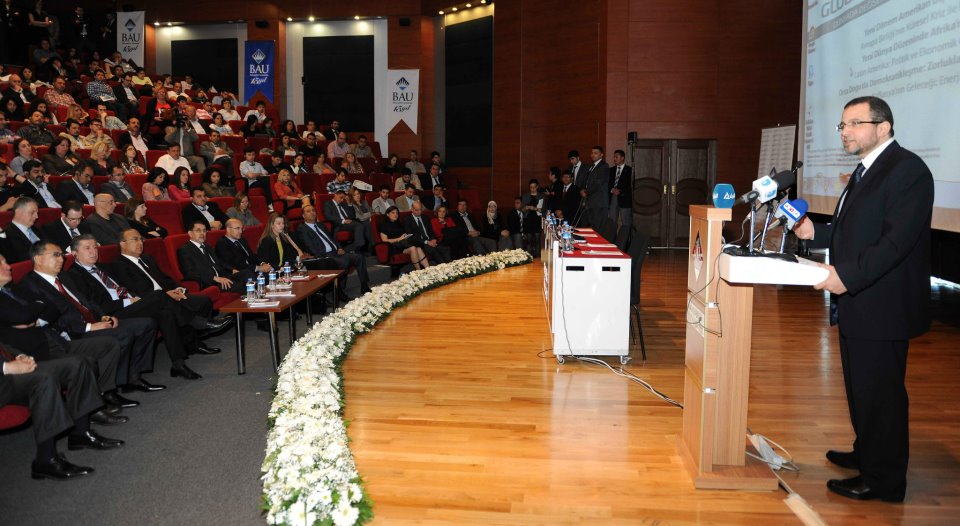The Egyptian government implemented nearly 500 reform measures between May 2022 and December 2024 aimed at enhancing the private sector’s role in driving the country’s economic growth, according to a comprehensive report by the Information and Decision Support Centre (IDSC) at the Cabinet, reviewed by Prime Minister Mostafa Madbouly.
The reforms target obstacles to private sector participation, aiming to increase its Gross Domestic Product (GDP) contribution, generate employment, attract investment, and boost exports, aligning with Egypt’s State Ownership Policy Document strategic shift towards private sector-led growth.
Osama El-Gohary, Assistant to the Prime Minister and Head of IDSC, stated that the government introduced a wide range of reforms across six key areas: monetary policy and exchange rate reforms; enhancing competition and promoting competitive neutrality; supporting the industrial sector; improving the investment climate and business environment; reforming legal and regulatory frameworks; and implementing the State Ownership Policy Document.
Improving the business environment and supporting investment (189 measures) and encouraging the industrial sector (134 measures) constituted the largest share, at approximately 64.6% of total reforms, the report noted. In 2024 alone, 321 reform measures were implemented, 64.2% of the total for the period. These predominantly focused on investment support (121), institutional and legislative framework reform (96), and industry encouragement (83), accounting for about 93.5% of reforms in 2024.
Regarding monetary policy and exchange rate flexibility, 11 reform measures (2.2% of the total) were introduced. A key step was the Central Bank of Egypt’s (CBE) March 2024 commitment to a gradual shift towards a flexible inflation-targeting framework, aiming for 7% (±2%) inflation by the end of 2026 and 5% (±2%) by the end of 2028. This shift has positively impacted the investment climate, with net foreign direct investment (FDI) in fiscal year (FY) 2023/2024 reaching $46.1bn and portfolio investments registering $14.5bn in net inflows.
To enhance competition and competitive neutrality, 14 reforms (2.8% of total) were implemented. These included achieving the interim goals of the Competition Protection Agency’s strategy (2021–2025) and introducing a pre-merger and acquisition regulatory system in June 2024. Consequently, Egypt’s Competition Protection and Anti-Monopoly Practices Agency received an honorary prize in 2024 from the World Bank and the International Competition Network for its “Arab Competition Authority Simulation Model” initiative.
Reforms to encourage the industrial sector totalled 134 measures (26.8%). Key actions included ministerial decisions facilitating industrial procedures, such as adopting National Food Safety Authority health and food safety certificates (effective early 2025), and logistical and customs facilitations like seven-day port operations, helping create 960 export opportunities valued at approximately $2.3bn. To support productive sector financing, EGP 67.5bn in credit facilities were allocated to nearly 2,600 clients between July 2023 and June 2024, with 96% for working capital (78% to industry, 22% to agriculture). In December 2024, an EGP 30bn initiative for priority industrial sectors was launched, alongside a reactivated soft loan programme. The impact saw industry account for 15.7% of new companies registered in FY 2023/2024. Industrial zones attracted 218 new project contracts worth more than $5.1bn. Egyptian goods exports grew 14% in 2024 to $40.8bn, from $35.8bn in 2023.
Measures to support investment and enhance the business environment comprised 189 reforms (37.8%), the largest share. These included tax incentives and the “golden licence”, granted to 46 companies by March 2025. The Small and Medium Enterprises Development Authority issued 616 temporary licences, 242 final licences, and 499 temporary regularisation licences. Export support saw EGP 70bn injected between 2019 and 2024, benefiting over 2,500 companies. A 2024 investment deal with the UAE, valued at $35bn, focuses on developing Ras El-Hekma city, expected to attract a further $150bn in investment and welcome approximately 8m tourists. Egypt is set to receive about 35% of the project’s profits. Private investments rose from EGP 213.5bn in FY 2016/2017 to around EGP 700bn in FY 2023/2024. In Q2 FY 2024/2025, private sector investments reached EGP 148.5bn (53.3% of total investments), a 35.4% year-on-year increase.
Reforms in legal, regulatory, and institutional frameworks involved 128 measures (25.6%). Initiatives included a draft resolution to organise the Ministry of Investment and Foreign Trade and publication of a list of economic activities under foreign investment controls. A Prime Ministerial decree established the Industrial Ministerial Group. These reforms positively impacted international governance indicators in 2023: the Regulatory Quality Index rose 2.4 points to 26.9, the Rule of Law Index improved 1.4 points to 44.3, and the Government Effectiveness Index increased 7.6 points to 42.
Implementing the State Ownership Policy Document involved 24 measures (4.8%), including approving a draft law in May 2024 regulating state ownership and initiating restructuring of 59 economic bodies in December 2024.
The reforms significantly impacted private sector empowerment: its GDP contribution rose to 74.8% in FY 2022/2023, its share of total investments increased to 37% in FY 2023/2024, and it contributed 81.3% of new jobs in 2023, up from a 76.3% average between 2013 and 2022.
The reforms have drawn international recognition. The World Bank commended the CBE’s March 2024 decisions. StartUp Blink ranked Egypt’s start-up ecosystem among North Africa’s strongest. McKinsey noted an improved investment environment, and the UN’s ESCWA recognised Egypt for launching electronic platforms for foreign investment registration. The IDSC report indicated this package of reforms underscores Egypt’s commitment to creating a more competitive, diversified, and private sector-driven economy, aiming to unlock new opportunities for sustainable growth and position Egypt as a regional hub.




